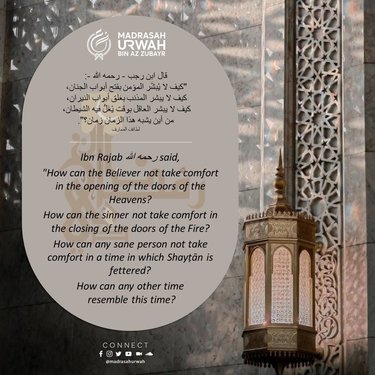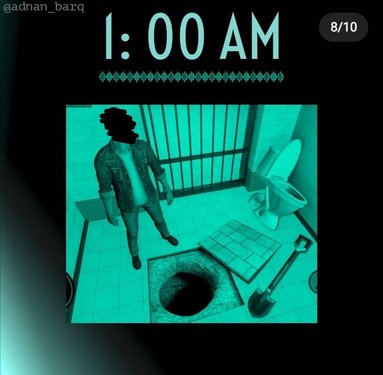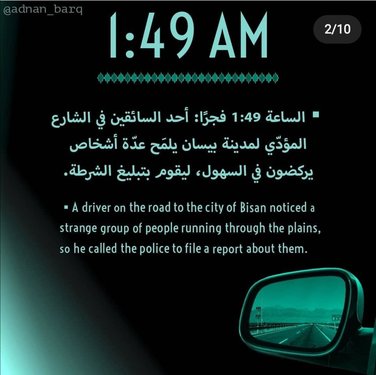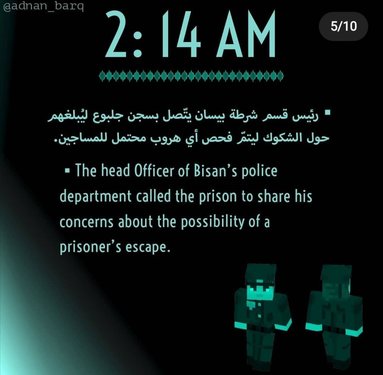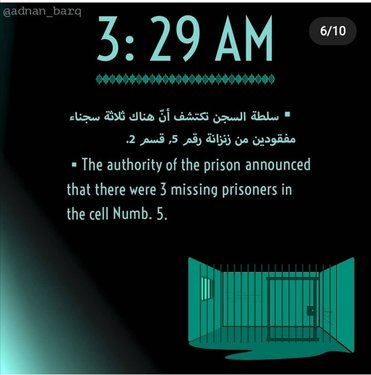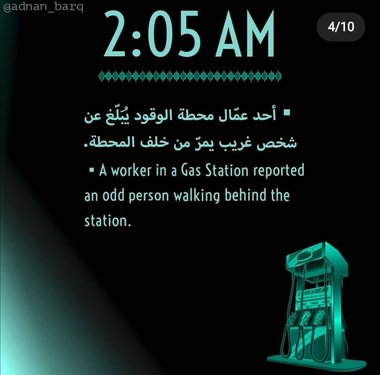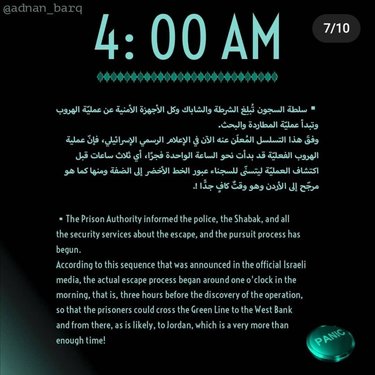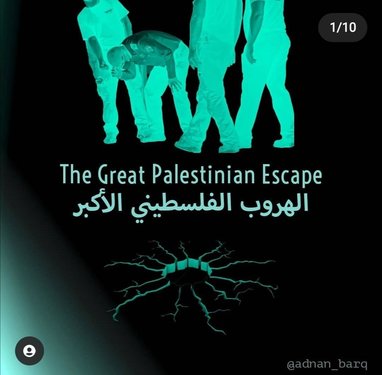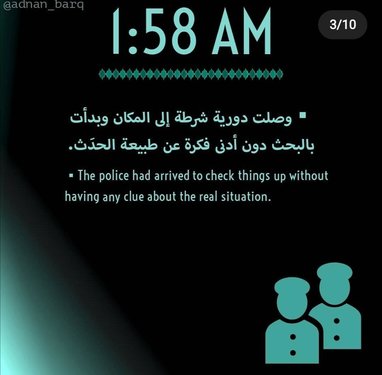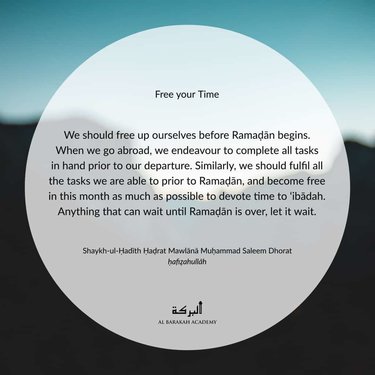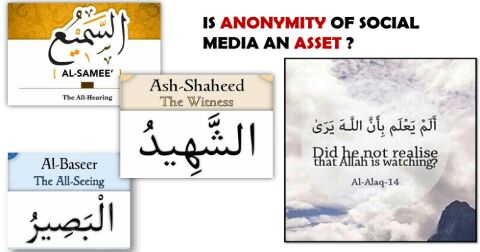Leaderboard
Popular Content
Showing content with the highest reputation since 04/26/2018 in all areas
-
Allahu Akbar, Walillahil-Hamd First Taraweeh in 88 years will be led by (Maulana) Professor Ali Erbas (HA), himself tonight2 points
-
As-Salaam alaikum, Have you ever considered the acquisition of the sweetness of faith (Imaan) and that immense enjoyment in the worship (Ibaadah) we do? The pleasure a person finds in his Sallaah impels him to delay his Sajdas. His Zikr of Allah Ta'ala emanates from the deep recesses of his heart... intoxicating him. The requirement for this intoxication and ecstasy is not wine or worldly love; the requirement for this 'high' is neither heroine nor cocaine, it is the Remembrance of his Beloved Lord (Allahu). When he recites the Holy Qur'an, it is as if he is conversing with his Rabb. The Speech of Allah Ta'ala, which he recites, deeply impresses upon his heart and establishes a profound and strong Imaan within him. With a deep hearted enjoyment, he believes that his Lord, Allah, is listening to His Own Kalaam (Speech) from the tongue of His sinful servant. Allahu Akbar! Wa Lillahil-Hamd!!2 points
-
Read here: https://www-independent-co-uk.cdn.ampproject.org/c/s/www.independent.co.uk/voices/september-11-guantanamo-bay-war-on-terror-afghanistan-b1917879.html?amp2 points
-
From Afghan women regarding Afghan women VID_150010127_044805_681.mp4 VID_150010715_052943_075.mp4 VID_150010827_104245_366.mp42 points
-
Thank you very much respected Admin for publishing my post. I shall abide by the rules and regulations of this site by the grace of God. Mohammad Rafique Etesam ( shaikhrafiquee)2 points
-
wa'alaykumus salam warahmatullah I asked and recieved following reply so it can be done but I dont think people with websites would take the risk2 points
-
This is the stance of Islamic political parties: https://www.dawn.com/news/amp/1641051 I don't know of any Deobandi madrasah in Pakistan that does not hail and support Afghan Taliban. Ghair muqallideen / ahle hadith Ulama also support them. I've heard them showing approval and praising them in their speeches but I don't know if they support them in any other way.2 points
-
2 points
-
Amount of water used by Nabi (sallallahu alaihi wasallam) for wudhu and ghusl Q: How many litres of water would Nabi (sallallahu alaihi wasallam) use for wudhu and for ghusl? A: Hazrat ‘Aaishah (radhiyallahu anha) reports that Rasulullah (sallallahu alaihi wasallam) used one mudd of water for wudhu and one saa’ for ghusl. One mudd amounts to approximately 1.03 litres and one saa’ is approximately 4.1 litres. And Allah Ta'ala (الله تعالى) knows best. عن أنس رضي الله عنه قال: كان النبي صلى الله عليه وسلم يغسل، أو كان يغتسل، بالصاع إلى خمسة أمداد، ويتوضأ بالمد (صحيح البخاري، الرقم: 201) عن عائشة رضي الله عنهاأن النبي صلى الله عليه وسلم كان يغتسل بالصاع ويتوضأ بالمد (سنن أبي داود، الرقم: 92) فتاوى محموديه 8/122 أحسن الفتاوى 4/386 تأليفات رشيديه صـ 245 Answered by: Mufti Ebrahim Salejee (Isipingo Beach)2 points
-
At the moment I'm celebrating as well as being wary. Just because they are the Taliban, we shouldn't give them a free pass. In fact they should be held to a stricter standard. It's very early days so let's wait and see how things pan out. I don't know what their justification is in forming a relationship with China, but I'm hoping and praying that it is all in Allah's plan and inshallah we shall see the benefit. My mind keeps thinking back to the treaty of hudaibiya and how it ultimately lead to our benefit. The first time Taliban took over, they allowed the losing side to join Taliban and gave them the same positions they held when they were in opposition to the Taliban. They also allowed the opposition to hold official positions in some areas such as Kabul. I can understand their hikmat behind this, but it backfired. The ex opposition holding positions in the Taliban gained numbers and strength and caused problems for the main leadership, including ameerul mumineen mullah umar (rh). I hope this doesn't happen again. I think this is a very critical time and the Taliban need help and support from our scholars, world leaders, and general awaam.2 points
-
2 points
-
No he is not a scholar, just a student of knowledge But I think he can make a lot of contribution in Maliki fiqh discussion2 points
-
Mufti Muhammad Shafi Explaning following incident with Shaykh al-Hind Moulānā Mahmūd al-Hasan Someone once asked Shaykh al-Hind about the hadith: “The Prophet ﷺ has said that Satan does not pass the road which is used by 'Umar." Because the same or similar was not said in relation to the Prophet ﷺ or Abu Bakr (رضي الله عنه), the question naturally arises as to why Satan should have feared Umar (رضي الله عنه) alone, even though both the Prophet ﷺ and Abu Bakr (رضي الله عنه) enjoyed a higher status than him. Mufti Muhammad Shafi' said that in responding to any kind of critical question, Shaykh al-Hind would usually commence with a pointed, but humourous kind of remark, before providing a more comprehensive reply. Hence, it came as no surprise that in answer to this question, he opened with a quick-witted observation: "It is Satan's own stupidity. I think you had best ask him why he feared Umar (رضي الله عنه ) more than the Prophet ﷺ or Abu Bakr (رضي الله عنه)!" He then cogently proceeded to offer the following explanation: "Superiority and awe are two different things. A superior person may not necessarily be the most dreaded person. In the case of Umar (رضي الله عنه) the quality of awe was a predominant characteristic, and its presence was what the hearts of the people felt most immediately. On the other hand, in the case of the Prophet ﷺ and Abū Bakr (رضي الله عنه), the quality of beauty was what predominated in their characters. Given this contrast, the immediate sense of awe when confronted with 'Umar (رضي الله عنه) is not surprising." [The Great Scholars of the Deoband Islamic Seminary by Mufti Muhammad Taqi Usmani]2 points
-
I am not an Arab I am not from the Middle-East I don't speak Arabic But why does Palestine matter to me as a Muslim and as a human? How did we get here through the lens of history? https://youtu.be/RbLEiTbzCqI2 points
-
Assalaamu ‘alaykum warahmatullah I will try to answer your question to the best of my ability according to what I have learnt in these “billion courses and gazillion articles”. On a side note, these courses and articles are mostly very basic, outlining the maxims for awareness. The only in-depth courses in the UK that I know of were conducted by Ustadhah Hidaya Hartford and Mufti Abdul Rahman Mangera sahib. I know there is one in Pakistan which is in Urdu and which many UK sisters have joined. Regarding: Absolutely agree with you. They probably did not even have calendars and definitely no apps and probably did not even need to record their cycles (due to the points I’ll mention below) so no dispute with you or the Mufti sahib you consulted. In order to answer your question regarding, “why this issue is so complex that it needs tables and Apps to track” I will insha-allah first have to explain some important points which have bearing on the answer. I’ll try to be as brief as possible 1 Knowledge of Sahaabiyaat RA compared to women today: The Sahaabiyaat RA lived with none other than the source of all knowledge (sallallaahu ‘alayhi wasallam) whom they consulted through his Azwaaji Mutahharaat RA regarding these issues and would therefore be knowledgeable in this regard. Generally, among women today, ignorance of fiqhi issues prevails to the extent that many women are not aware of the faraaidh of ghusl and wudhu – not saying all women are ignorant as Alhamdulillah Allah ta’ala has blessed women great uloom throughout the ages till today 2 Things which Impact menstrual cycles: Allah ta’ala ordained for women to go through the menstrual cycles and post-natal bleeding from day one yes, however women through the ages lived in different environments which impacted their cycles differently. Many things which affect women’s cycles today were unknown in the time of the Sahaabiyaat RA. Various illnesses exist today which were unknown even a few generations ago let alone in the time of the Sahaabiyaat RA. The illnesses themselves or their treatments, medication, etc. affect women’s cycles. Added to that, there are various forms of contraception Muslim women use in our age, almost all of which cause problems with women’s cycles. The food and drink consumed today also affects women’s cycles Stress, anxiety, depression, etc. was most probably unknown in their time and this also affects women’s cycles. All this information can be verified online. 3 For non-Muslim women all of the above does not create any issue whereas the very core of the Deen is affected for Muslim women where their obligatory worship which requires the state of purity is affected (5 daily prayers, fasting of Ramadhaan, the main Tawaf of Hajj). Therefore, Muslim women need to know the basic rules of when they are allowed to continue these obligations and when to refrain and that is why there are so many books, articles and courses. 4 Misconceptions One of the greatest misconceptions that exists among many cultures is LEAVING OUT the obligatory acts of worship which require the state of purity once any type of bleeding begins. This is sinful as there are situations where a woman may be bleeding however it is termed “Istihadha” (Irregular bleeding, invalid bleeding) during which she must continue carrying out those acts of worship. 5 Few facts regarding women’s bleedings Now towards why women need to keep a record of their cycles. The Shari’ah has set out maxims regarding menstruation and post-natal bleeding. A woman’s blood can by one of three types – menstruation (haydh), post-natal (nifaas) or invalid Istihadaha). These maxims help determine which type of bleeding a woman is experiencing and as mentioned before, this impacts her obligatory acts of worship. Women develop “habits” in menstruation and purity and in the bleeding after childbirth. Please remember this point. Everything is simple as long as women’s cycles remain within the limits set out by the Shari’ah. (Note that differences of opinion exist between the Madhaahib and even within the Hanafi Madhab as these are ijtihaadi Masaail) Problems only arise when bleedings are abnormal/invalid. Many women do not experience many problems however problems do usually arise at the following stages of a woman’s life; At adolescence – Girls s begin menstruating at a much younger age than before and some start off with no regular habits and actually experience continuous or intermittent bleeding or spotting without having a complete purity of 15+ days in between bleedings (which separates two bleedings). This is generally a straight forward issue where they are “given” habits in both menstruation (10 days) and purity (20 days) which is used to determine when they can carry on their acts of obligatory worship and when they are required to refrain After child-birth – many women continue bleeding after the maximum 40 days creating confusion regarding acts of worship During menopause – most women experience a total change in their cycles from ages as early as 45 nowadays where bleeding occurs frequently without the required 15+ day purity occurring between bleedings. Use of contraception – is the most common cause of irregular bleeding for women whatever their age Keeping all the above in mind, now the answer to the question: Answer: Any ‘Aalim/Mufti will tell you that previous habits are necessary when blood exceeds the maximum or when it is continuous – by continuous I mean there is no occurrence of a complete purity of 15+ days and this situation can last for months. Experience shows that most women simply stop praying when they experience any type of bleeding or spotting no matter how long it carries on. They only consult Apas when they are made aware by someone with more knowledge. The Mudhillah is a woman who has forgotten her habits (not recorded them). For the Mudhillah the situation can get extremely serious when she suddenly experiences problematic cycles (Hardly any women remember their exact days of previous bleedings and purity as they generally fluctuate) because it is impossible to determine the bleedings without previous habits. In some extreme cases, some women may have to perform ghusl (obligatory ritual bath for full body purification) BEFORE EVERY PRAYER and thereafter repeat it in the next prayer time. However, at these times (in some cases) they may be allowed to take dispensations from other Madahaahib which is an extreme mercy of our Most Gracious Lord! And this is why there are these “billion courses and gazillion articles” so as to educate and empower women in their Deen. And this is the reason why great Fuqahaa of the past have written hundreds of treaties on the subject and as ʿAllaamah Ibn ‘Aabideen Al-Shaami (Rahimahullah) says in ““Manhalil Waarideen min Bihaaril Faydh ‘alaa “Dhukrul Muta-aahileen fee Masaailil Haydh” (The kitab taught by Mufti Abdur Rahmaan Mangera sahib) [the fuqaha have agreed on the mandatory nature of the obligation of knowing the necessary states of a person] This is to have knowledge of that ruling, which a person is in need of, at the time he is in need of it. By learning these rules in these “billion courses and gazillion articles” and following them, women are in fact worshipping their Lord. Isn’t our Deen the most beautiful?! Apologies as I could not answer in just a few sentences and also for saying you were being “Rather selfish” but this is exactly how it appears from your own words however it my not be so.2 points
-
2 points
-
Aameen to lovely Du'a and its so good to see this topic continued, Jazaakillah Can you please double check the spelling in thsi word ? - ثَوَابَلهُ2 points
-
2 points
-
مَالِكُ ٱلْمُلْكُ Translation The Eternal Owner of Sovereignty, The Master of The Kingdom. Definition This name has two definitions: 1. Allah is the Owner of all things and He controls them without any hindrance or opposition. 2. Imam Laith (may Allah have mercy on him) said: "Allah, the Almighty, He is the Allah, blessed and exalted is He, He is the King of all kings, kingship belongs to Him, and He is the Owner of the Day of Judgment." So, a person who resides in a house and considers it his property without any association, think about it, nearly fifty-sixty years ago, whose property was it and where is it today? What was the outcome of his claimed ownership? Mutannabi said it well: "The one who comes to this world takes ownership of it like a usurper seizing someone else's property, and the one who leaves it, departs from the world as if someone has looted his wealth." In the Qur'an قُلِ ٱللَّهُمَّ مَـٰلِكَ ٱلْمُلْكِ تُؤْتِى ٱلْمُلْكَ مَن تَشَآءُ وَتَنزِعُ ٱلْمُلْكَ مِمَّن تَشَآءُ وَتُعِزُّ مَن تَشَآءُ وَتُذِلُّ مَن تَشَآءُ ۖ بِيَدِكَ ٱلْخَيْرُ ۖ إِنَّكَ عَلَىٰ كُلِّ شَىْءٍۢ قَدِيرٌۭ Say, ˹O Prophet,˺ “O Allah! Lord over all authorities! You give authority to whoever You please and remove it from who You please; You honour whoever You please and disgrace who You please—all good is in Your Hands. Surely You ˹alone˺ are Most Capable of everything. (Surah Ali 'Imran: 26) تُولِجُ اللَّيْلَ فِي الْنَّهَارِ وَتُولِجُ النَّهَارَ فِي اللَّيْلِ وَتُخْرِجُ الْحَيَّ مِنَ الْمَيِّتِ وَتُخْرِجُ الَمَيَّتَ مِنَ الْحَيِّ وَتَرْزُقُ مَن تَشَاء بِغَيْرِ حِسَابٍ You cause the night to pass into the day and the day into the night. You bring forth the living from the dead and the dead from the living. And You provide for whoever You will without limit.” (Surah Ali 'Imran: 27) لِّلَّهِ مُلْكُ ٱلسَّمَـٰوَٰتِ وَٱلْأَرْضِ ۚ يَخْلُقُ مَا يَشَآءُ ۚ يَهَبُ لِمَن يَشَآءُ إِنَـٰثًۭا وَيَهَبُ لِمَن يَشَآءُ ٱلذُّكُورَ To Allah ˹alone˺ belongs the kingdom of the heavens and the earth. He creates whatever He wills. He blesses whoever He wills with daughters, and blesses whoever He wills with sons (Surah Ash-Shuraa: 49) In Du'a The Virtue of Supplicating Through This Blessed Name There is a narration that if supplication is made with the Ism Azam (the Greatest Name of Allah), then that supplication is accepted. قُلِ ٱللَّهُمَّ مَـٰلِكَ ٱلْمُلْكِ تُؤْتِى ٱلْمُلْكَ مَن تَشَآءُ وَتَنزِعُ ٱلْمُلْكَ مِمَّن تَشَآءُ "Say, 'O Allah, Owner of Sovereignty, You give kingship to whom You will and take it away from whom You will.'" (Quran, Surah Al Imran, 3:26) In this verse, the boundless power and might of Allah are expressed; He can make a king into a beggar and a beggar into a king. He is the owner of all authority, and all goodness lies solely in the hands of Allah; besides Allah, there is no bestower of goodness. Imam Baghawi (may Allah have mercy on him) has narrated a hadith that the Messenger of Allah (peace be upon him) said: It is the command of Allah that whoever recites after every prayer Surah Al-Fatihah, Ayat al-Kursi, and two verses of Al-Imran, one verse: شَهِدَ ٱللَّهُ أَنَّهُۥ لَآ إِلَـٰهَ إِلَّا هُوَ until the end, and the other verse: قُلِ ٱللَّهُمَّ مَـٰلِكَ ٱلْمُلْكِ till بِغَيْرِ حِسَابٍ , then I will build a house for him in Paradise ... And I will bestow my mercy upon him every day ... And I will fulfill all his needs ... And I will grant him refuge from every envious person and enemy ..." The true King is Allah After detailing Allah's glory and His blessings upon His servants in Surah Fatir, it is stated: "That is Allah—your Lord! All authority belongs to Him. But those ˹idols˺ you invoke besides Him do not possess even the skin of a date stone. If you call upon them, they cannot hear your calls. And if they were to hear, they could not respond to you. On the Day of Judgment they will disown your worship ˹of them˺. And no one can inform you ˹O Prophet˺ like the All-Knowledgeable. O humanity! It is you who stand in need of Allah, but Allah ˹alone˺ is the Self-Sufficient, Praiseworthy. If He willed, He could eliminate you and produce a new creation. And that is not difficult for Allah ˹at all˺." (Quran, Surah Fatir) When you believe in the original Creator and Master, the one who controls and sustains the entire universe, then you should not fear anyone besides Him and should not turn back to others as objects of worship. When the True One is there, what remains after truth except falsehood? Leaving truth and indulging in false illusions, making someone else a deity besides the Creator, the Owner, the Absolute Lord, and the Sovereign is not the act of a wise person. How can someone who relies on Allah be troubled? There was once a severe drought in Balkh, to the extent that people started eating every kind of withered grass. Everyone was deeply distressed and despondent, but a servant continued to happily sell in the market. When people reproached him, he replied: Translation: "I have no sorrow because the owner of an entire village (without any partnership) is my master. (This thing has freed my heart from all kinds of worries and relieved all my sorrows)." Upon hearing this, Abu Ali Shafiq bin Ibrahim Azdi (may Allah have mercy on him) opened his eyes, feeling deeply ashamed, and turned towards Allah, saying: "O Allah, this servant belongs to a person whose possession is only one village, yet he is so happy, and we too call You our Lord and are concerned about our sustenance to such an extent that it has no bounds." So, when this thought came to his mind he turned away from the affairs of the world and futile thoughts, and adopted worldly means with moderation while engaging in religious matters. From that day on, he mentions that he never felt distressed about sustenance. Counsel (1) Those who have a connection with this blessed name should consider themselves as humble servants. The true owner of everything, the true owner of every person, is the one whose sovereignty is eternal and absolute. He who crowns the poor and makes thrones dust for kings. (2) One should repeatedly ponder that besides Allah, there is no creator, no provider of sustenance, nor does anyone have the power to grant or prevent, to give life or to cause death. Not even a particle can move without His will. Therefore, one should engage in worship and supplication only to Him. (3) One should refrain from asking anything from others, while keeping in mind the virtue of supplicating through this blessed name and make arrangements for supplication. (4) Sit alone and contemplate, and invite people in gatherings that the sole owner of the entire universe is only Allah, and whatever is in the universe, its owner is also only Allah. A person who has acquired knowledge of this name will not argue with people saying, "So and so took away my thing, so and so did not give it to me"; rather, he will believe that "I will take more of this from Malikul Mulk, if Allah intends to give it to me, no one can stop it, if Allah does not intend, no one can give it, then why complain to the creation?" And consider oneself and whatever is in one's possession as owned, that this is temporary ownership for me, so I should spend these blessings in the way of Allah. Life, time, wealth, everything, man deceives himself about these worldly blessings, thinking they are mine! Whereas, all this is entrusted by Allah. *~~*~~*1 point
-
1 point
-
One should recite the following dua when overcome by fear أَعُوذُ بِكَلِمَاتِ اللَّهِ التَّامَّةِ، مِنْ غَضَبِهِ وَشَرِّ عِبَادِهِ، وَمِنْ هَمَزَاتِ الشَّيَاطِينِ وَأَنْ يَحْضُرُون I seek protection through the complete words of Allah Ta’ala from His anger, the evil of His servants, the whispers of the Shayateen and of their presence. عن عمرو بن شعيب، عن أبيه، عن جده، أن رسول الله صلى الله عليه وسلم كان يعلمهم من الفزع كلمات: أعوذ بكلمات الله التامة، من غضبه وشر عباده، ومن همزات الشياطين وأن يحضرون (سنن أبي داود، الرقم: 3893) Hazrat Abdullah bin Amr (radhiyallahu ‘anhuma) reports that Rasulullah (sallallahu ‘alaihi wasallam) would teach the Sahaabah (radhiyallahu ‘anhum) to recite the following dua when experiencing fear: أَعُوذُ بِكَلِمَاتِ اللَّهِ التَّامَّةِ، مِنْ غَضَبِهِ وَشَرِّ عِبَادِهِ، وَمِنْ هَمَزَاتِ الشَّيَاطِينِ وَأَنْ يَحْضُرُون ihyaauddeen..co.za1 point
-
1 point
-
Salaam. Multiple explosions and gun fights attributed to ISIS. 3 explosions so far. Multiple deaths and injuries including US troops. r/afghancivilwar (reddit) is a good source for quick information.1 point
-
URGENT: Meet Your MP - Friends of Al-Aqsa (foa.org.uk) Write to your MP to meet you online On June 14th a debate has been scheduled in Parliament for MPs to discuss sanctions on Israel. FOA are calling on everyone to contact their MP’s to meet them (online) on Wednesday 9th June to: Ask MP’s to attend the June 14th debate and call for sanctions on Israel for breaking international law. If they are unable to attend, ask them to make a public statement which supports sanctions on Israel.1 point
-
Jazaakillaahu khayraa I always thought these were all separate du'as1 point
-
If you would like to see the full du’aa that is referenced for du'aa numbers 137-143 in Munajat-e-Maqbul, please take a look at this link inshaallah: https://sunnah.com/tirmidhi/48/501 point
-
1 point
-
Someone came to the Mother of Khwaja Fariduddin Masud رضي الله عنه and said," to her your son is a great saint of Allah, every none muslim, who comes into his companyembraces Islam, hundreds of thousands of people have been guided to the straight path, due to him. How fortunate you are to be the Mother of such a great saint and Wali of Allah." She smiled and said "Rather how fortunate he is to have a mother who is a lover of Allah. Let me tell you how farid has reached the position he has, When he was a newborn before I would suckle him I would do wudu and then as he suckled I would recite the words of the Quran. As he grew older, I would do the chores around the house, he would follow me around and my tongue would be absorbed in zikr and durood, the remembrance of Allah and his messenger. Whilst others engaged in telling lies, I have never uttered a word of untruth, others spend their time slandering and backbiting others I have never uttered about anyone unless it was to point out a good quality of theirs. I would spend my nights, and days in the Ibadah of Allah. and never have these eyes of mine look or gazed at those things that Allah has forbidden. Before doing any action or uttering any word, I would first reflect whether I would be able to account for it on the day of qiyamah. If I did not have the taqwa in my heart if I had not been an abidaa, zakira, and zahida for all my life then how would Fariduddin have achieved such heights. Rather you should congratulate him for having a mother like me. The questioner said " I was told that Paradise lays at the feet of the mother only now do I fully realise, the significance of what that means." Julaybib1 point
-
The ‘Suhbat’ or company of the Auliya Allah (Friends of Allah Ta’ala) is such that even if they remain silent in their Majaalis, those who are present and who had come with sincerity, will leave with Noor in their hearts. It is via this Noor that a person makes sincere Taubah, and it is this Noor which is instrumental in creating the keen desire of change in the person’s life. Fragrant roses in a room do not give any speech. Their fragrance imbues throughout the room, enters the nostrils and creates pleasure in the heart. The conditions for benefiting are : The roses must be real and fragrant; not artificial. The people in the room must have their noses open and sinuses unclogged. In a similar manner, the person must be a genuine Wali of Allah Ta’ala and not a fraud, and the people sitting in his company must have love and respect for him and must sit with an open and unprejudiced heart, willing to receive. People sitting in the talks of a Wali, harbouring malice against that Wali, will derive no benefit whatsoever. What would be a person’s reaction, when instead of these virtues, he or she finds arrogance, pride, malice, greed, jealousy, etc.? (Hazrat Mawlana Yunus Patel rah)1 point
-
Q. How many days after Hajj is a Haaji’s Duas still accepted for forgiveness? A. A Haaji’s Dua of forgiveness for himself and for others continues from the days of Hajj until the 10th of Rabi-Ul-Awwal which is approximately 90 days. One may continue to request the Haaji to make Dua for himself/herself until the 10th of Rabi-Ul-Awwal. Sayyiduna Ibn Umar Radhiyallahu Anhuma reports, “The Haaji will be forgiven and for whom the Haaji seeks forgiveness, for the remainder of the Month of Zul-Hijjah (20 days from the 10th of Zul-Hijjah), the Month of Muharram (30 days), the Month of Safar (30 days) and 10 days of the Month of Rabi-Ul-Awwal (10 days).” (Musannaf Ibn Abi Shaybah) Note: The common notion that the Haaji’s Dua is accepted for 40 days from the days of Hajj is unsubstantiated. The Haaji’s Dua being accepted for approximately 90 days from the days of Hajj is substantiated. And Allah Ta’ala Knows Best Mufti Ismaeel Bassa Confirmation: Mufti Ebrahim Desai (The answer hereby given is specifically based on the question asked and should be read together with the question asked. Islamic rulings on this Q&A newsletter are answered in accordance to the Hanafi Fiqh unless otherwise stated.) Fatwa Department Jamiatul Ulama (KZN) Council of Muslim Theologians1 point
-
Definitely as its on fear of Alah ta'ala that makes a person be just behind closed doors1 point
-
Shortcut to Gaining on Laylatul Qadr Hazrat Mufti Ebrahim Salejee (Daamat Barakaatuhu) mentioned: Nowadays we always look for shortcuts and an easy way to get our work done. So what is the shortcut and easy way to gain the maximum on Laylatul Qadr. Two ways come to mind: 1) The night starts from Maghrib (sunset) and ends at subah saadiq. Normally we are still fresh and have control of the time between Maghrib and Esha and by the time taraaweeh is over we are tired. Hence, maximise by doing ‘ibaadat after Maghrib. 2) We are advised in the hadeeth to recite this du‘aa on Laylatul Qadr: “Allahumma innaka ‘afuwwun tuhibbul ‘afwa fa’fu ‘anni” (O Allah! You are the One who forgives and You love forgiving. So do forgive me.) Hence, in the intervals between every four rakaats in Taraaweeh Salaah, you can easily recite this du‘aa approximately 10 times.1 point
-
يَوْمَ تَرَى الْمُؤْمِنِينَ وَالْمُؤْمِنَاتِ يَسْعَىٰ نُورُهُمْ بَيْنَ أَيْدِيهِمْ وَبِأَيْمَانِهِمْ بُشْرَاكُمُ الْيَوْمَ جَنَّاتٌ تَجْرِي مِنْ تَحْتِهَا الْأَنْهَارُ خَالِدِينَ فِيهَا ۚ ذَٰلِكَ هُوَ الْفَوْزُ الْعَظِيمُ On the Day of Judgement you shall see the true believing men and the believing women, with their light shining before them and on their right hands, and it will be said to them: "Rejoice today, you shall enter the gardens beneath which rivers flow, in which you shall live forever, and that is the highest achievement." [Surah Hadeed: 12] Ways to attain Noor Mufti Shafi’ (Rahimahullah) has compiled a list of ways to earn Noor in Ma’aariful Qur’an. (For references of these ahadeeth, refer to the Tafseer of this verse (Hadeed: 12) in Maarif al Quran) “Give glad tidings to those who go to the mosque in the darkness of night that they will receive perfect light on the Day of Judgment.” “He who takes care of his five daily prayers [that is, performs them regularly fulfilling all their essentials], it will serve as light, proof and salvation for him on the Day of Judgement. He who fails to take care of it, there will be no light, nor proof or salvation for him on the Day of Judgement. The latter will be in the company of Qarun, Haman and Fir’aun.” “Whoever recites Surah Al-Kahf, there will be so much of light for him on the Day of Judgement that it will spread from his place to Makkah.” In another narration, “Whoever recites Surah Al-Kahf on a Friday, light will extend from his feet to the heights of the heaven on the Day of Judgment.” “Whoever recites just a single verse of the Quran, it will be a light for him on the Day of Judgement.” “Whoever sends salah (durood) to me, it shall be the cause of light on the Bridge of Sirat.” “The hair, that falls on the ground at the time of shaving it when coming out of the state of ihram, will be a light for him on the Day of Judgement.” “Stoning the Jamaraat in Mina will be a light on the Day of Judgement.” “He whose hair turns grey in Islam, it will be a light for him on the Day of Judgement.” (i.e. he remains steadfast on Islam for his whole life) “He who shoots even one arrow in Allah’s way while fighting in jihad, it will be a light for him on the Day of Judgement.” “He who remembers Allah in the marketplace will receive light for every strand of hair on the Day of Judgement.” (markets being the places where the temptations of dunya manifest themselves) “He who alleviates the calamity of a Muslim, Allah will create two compartments of light for him at the bridge which will brighten up a whole world. No one besides Allah knows its number.”1 point
-
Assalamu alaikum Found a great site refuting atheism and secularism in Urdu. http://ilhaad.com/1 point
-
Question assalamwalakum wa rahmatulllahi wa barakatu, If one does not feel the incline to studying their alima course what should you do? I have the interest in learning the content but I do not feel the motivation on a daily basis Answer In the Name of Allah, the Most Gracious, the Most Merciful. As-salāmu ‘alaykum wa-rahmatullāhi wa-barakātuh. Sister in Islam, We are pleased to hear that you have the zeal to seek knowledge of Deen. We make du’aa to Allah to keep you firm and steadfast on Deen & grant you beneficial knowledge. Aameen. There are numerous Ahaadith stating the virtues of a person who goes out to seek knowledge Rasulullah Sallallahu alaihi wasallam has mentioned: منْ سَلَكَ طَرِيقًا يَطْلُبُ فِيهِ عِلْمًا سَهل اللَّهُ بِهِ طَرِيقًا مِنْ طُرُقِ الْجَنَّةِ، وَإِنَّ الْمَلَائِكَةَ لَتَضَعُ أَجْنِحَتَهَا رِضًا لِطَالِبِ الْعِلْمِ، وَإِنَّ الْعَالِمَ لَيَسْتَغْفِرُ لَهُ مَنْ فِي السَّمَوَاتِ، وَمَنْ فِي الْأَرْضِ، وَالْحِيتَانُ فِي جَوْفِ الْمَاءِ، وَإِنَّ فَضْلَ الْعَالِمِ عَلَى الْعَابِدِ، كَفَضْلِ الْقَمَرِ لَيْلَةَ الْبَدْرِ عَلَى سَائِرِ الْكَوَاكِبِ، وَإِنَّ الْعُلَمَاءَ وَرَثَةُ الْأَنْبِيَاءِ، وَإِنَّ الْأَنْبِيَاءَ لَمْ يُوَرِّثُوا دِينَارًا، وَلَا دِرْهَمًا وَرَّثُوا الْعِلْمَ، فَمَنْ أَخَذَهُ أَخَذَ بِحَظٍّ وَافِر (سنن أبي داود، ج3ص317، المكتبة العصرية) Translation: “Whosoever traverses a path of knowledge, Allah will ease his path to Jannah. And the angles happily spread their wings for the one seeking knowledge. And every creation in the skies and the earth seek forgiveness for the seeker of knowledge including the fishes in the ocean. The virtue of a scholar over a worshipper is like that of a full moon on the night of 14th over the rest of the stars. And the scholars are the heirs of the Prophets. And the Prophets do not leave behind any wealth except for knowledge. Whosoever inherits from it has inherited a great portion. (Abu Dawood) v Below are some useful advises and tips summarized for motivation and steadfastness: 1) Don’t expect to feel motivated all the time: The fact is that no one feels motivated all the time. So don’t rely on feeling motivated in order to get the work done. Sometimes the motivation just won’t be there. That’s why you need a study routine and study habits, because systems always beat motivation. One of the best ways to deal with a lack of motivation is to stop expecting to feel motivated all the time. It’s all about consistency and making gradual progress. 2) Organize your time: The act of creating a study schedule is a form of commitment, so it will help you to stay motivated. Here are some useful steps in creating a study schedule: For each subject/book, make a list of the tasks you need to complete in order to be ready for the exam As far as possible, choose blocks of time that are the same each day (e.g. 3:30pm to 5:30pm) so that your study schedule is easy to remember Create a daily plan which lists the most important tasks to be completed for the day Review your study schedule at the end of each week. Evaluate whether you’re on track to reach your study goals by exam time. If you’re not, adjust your schedule by finding additional blocks of time for studying. 3) Group Study: Many students find it motivational to study in a group. Of course, it’s crucial that you find the right students to join the study group. These students should be focused and disciplined. Studying in a group is not only fun. It also gives everyone in the group a sense of accountability. Also, studying in a group takes advantage of the fact that everyone has different strengths and weaknesses. If there’s a concept you don’t understand, chances are that someone in your group will be able to explain it to you. When you study in a group you can pool your notes together and get much better notes than any one person could possibly produce. 4) Focus on the process, not the result: When you’re studying, it’s often difficult to see the fruit of your labour, especially at the beginning. That’s why you should focus on the process, not the result. Did you complete most of your planned tasks today? Congratulate yourself. Did you stick to your study schedule in general today? Maintain your focus. Did you put your phone in another room when you were studying, so you wouldn’t be distracted? Keep it up. Remember, it’s habits that you’re trying to form. If you get the process right, the results will follow. 5) Break the material down into chunks A major cause of procrastination is that the task ahead seems overwhelming. That’s when you need to “chunk down”. Break down each task into small chunks. Assign yourself a certain number of those chunks each day. Suddenly, you’re no longer faced with a scary task, but rather a series of manageable chunks. A chunk might be reading three pages of your textbook, completing five multiple-choice questions, or finding three reference articles on the Internet for your paper. 6) Study in short bursts Research shows that we learn better when we study in short bursts. It’s called “spaced learning”, and the theory behind it is that learning involves the creation of memories. Memories are formed through links between neurons. In order for these memories to become embedded, the neurons have to be left undisturbed for a period of time. That’s why we learn better in short bursts of studying. This approach gives the neurons time to “lay down” these new memories. 7) Exercise regularly When you’re focused on studying for a major exam, it’s common to overlook exercise. But, as far as possible, get 20 to 30 minutes of physical activity every day. This is because regular exercise is vital if you want to study effectively and stay motivated. Aerobic activity, such as swimming, jogging or walking, sends oxygen, blood and nutrients to your brain. This helps you to think and concentrate. Research even shows that short periods of light exercise immediately after studying improves the recall of new information. 8) Get rid of distractions This may seem like a no-brainer, but it’s amazing how many students try to study with one eye on their textbook and the other eye on their social media feed. It’s almost as if they want to be distracted. List all the common distractions you face when you’re studying. Do your best to eliminate every single one of them. For example, you could: Turn off your Internet access Put your phone on flight mode Put your phone in another room Mute your group chats Delete all the unnecessary apps from your phone, tablet and computer Spend minimum time if necessary. 9) If you don’t feel like starting, set a timer for 5 minutes Sometimes, the hardest part of anything is simply starting. But the fear of doing something is almost always worse than the actual doing. Once you start, you’ll find it wasn’t as bad as you thought. So if you don’t feel like getting to work, set a timer for 5 minutes. You can tell yourself that once those 5 minutes are up, you can stop work. But, in all likelihood, you would have got some momentum going, so you’ll continue. Conclusion The keys to getting motivated to study are organising your time and work, and knowing how to use your mind effectively. We also advise you to turn to Allah Ta’ala by praying Salatul hajah, Duaas, and Zikr. Read the following Duaas as much as possible for motivation and steadfastness: يَا مُقَلِّبَ الْقُلُوبِ ثَبِّتْ قَلْبِي عَلَى دِينِكَ(سنن الترمذي: 5/ 538) [ii] Translation: O Changer of the hearts, make my heart firm upon Your religion. يَا مُصَرِّفَ الْقُلُوبِ، ثَبِّتْ قَلْبِي عَلَى طَاعَتِكَ(مسند أحمد :15/ 245) [iii] Translation: O Changer of the hearts, make my heart firm upon Your religion. رَبَّنَا لَا تُزِغْ قُلُوبَنَا بَعْدَ إِذْ هَدَيْتَنَا وَهَبْ لَنَا مِن لَّدُنكَ رَحْمَةً ۚ إِنَّكَ أَنتَ الْوَهَّابُ - 3:8 Translation: [Who say], "Our Lord, let not our hearts deviate after You have guided us and grant us from Yourself mercy. Indeed, You are the Bestower. (Surah aal-Imran: 8) And Allah Ta’āla Knows Best Mahmood Baig Student Darul Iftaa Jeddah, KSA Checked and Approved by, Mufti Ebrahim Desai. Source1 point
-
Fasting on the 9th and 10th or 10th and 11th of Muharram (As the element of tashabbuh (emulation) of the Jews is no longer found) Q: I was recently informed by a friend that there is no need to fast on the 9th or 11th of Muharram together with the 10th in this era, as the element of tashabbuh (emulation) of the jews is no longer found. Is this correct? A: Rasulullah (Sallallahu Alaihi Wasallam) commanded the ummah to fast on either the 9th and 10th or the 10th and 11th of Muharram, in order to oppose the Jews who only fasted on the 10th. Though opposing the Jews was the initial reason for Rasulullah (Sallallahu Alaihi Wasallam) commanding the ummah to fast an extra day, once this practice has become a sunnah, it will not change, even if the Jews of today do not fast on the day of Aashura. There are certain sunnah practices which the Sahaabah were commanded to carry out for certain reasons. However, despite those reasons no longer remaining in today’s times, since these practices have become practices of Deen, they will remain Sunnah for the rest of time. One such example is that of ramal in the tawaaf of Hajj and Umrah. In the Mubaarak era of Rasulullah (Sallallahu Alaihi Wasallam), when Rasulullah (Sallallahu Alaihi Wasallam) and the Sahaabah came to Makkah Mukarramah to perform umrah, the Sahaabah were commanded by Rasulullah (Sallallahu Alaihi Wasallam) to make ramal during tawaaf to show the mushrikeen of Makkah their bodily strength and might. The mushrikeen were under the impression that the Sahaabah had become very weak through staying in Madinah Munawwarah (as the climatic conditions of Madinah Munawwarah prior to the hijrat of Rasulullah (Sallallahu Alaihi Wasallam) were not conducive to good health and people would fall ill and succumb to sicknesses very easily). Despite this reason no longer remaining after the demise of Rasulullah (Sallallahu Alaihi Wasallam), ramal is still carried out as a sunnah practice in the tawaafs. عن زيد بن أسلم عن أبيه قال : سمعت عمر يقول : فيم الرملان الآن وقد أطأ الله الإسلام ونفى الكفر وأهله وأيم الله ما ندع شيئا كنا نفعله على عهد رسول الله صلى الله عليه و سلم ( سنن ابن ماجه ص211) Hazrat Zaid bin Aslam (radhiyallahu ‘anhu) reports from his father who mentioned: I once heard Hazrat Umar (radhiyallahu ‘anhu) saying, “Why do we need to make ramal presently, whereas Allah Ta‘ala has strengthened Islam and banished disbelief and the people of disbelief? (Hazrat Umar (radhiyallahu ‘anhu) thereafter explained the reason for the practice of ramal remaining) By the oath of Allah! We will not abandon a practice which we would carry out during the blessed era of Rasulullah (sallallahu ‘alaihi wasallam).” It should be borne in mind that at times the Sunnah will be established through the Mubaarak words or actions of Rasulullah (Sallallahu Alayhi Wasallam) and at times it will be established through the tawaaruth and taaamul of the ummah (i.e. a practice existing in the Mubaarak era of Sahaaba and continuing in the ummah throughout the centuries of Islam till this day). When we view the issue of fasting for two days in the Mubaarak month of Muharram, we realize that it conforms to the taamul of the the ummah throughout the centuries of Islam and will therefore continue to be practiced in this manner. Hence, even if the Jews of today do not fast on the day of Aashura, the sunnah of Rasulullah (Sallallahu Alaihi Wasallam) regarding fasting on the 9th and 10th or 10th and 11th will not change. It is for this reason that the Fuqahaa have declared that fasting only on the day of Aashura is makrooh. (For further details on this issue, refer to http://muftionline.co.za/node/21912). And Allah Ta'ala (الله تعالى) knows best. Answered by: Mufti Zakaria Makada Checked & Approved: Mufti Ebrahim Salejee (Isipingo Beach)1 point
-
Take a lesson from the farmer's donkey!!! One day a farmer's donkey fell down into a well. The animal cried piteously for hours as the farmer tried to figure out what to do. Finally, he decided the animal was old, and the well needed to be covered up anyway; it just wasn't worth it to retrieve the donkey. He invited all his neighbors to come over and help him. They all grabbed a shovel and began to shovel dirt into the well. At first, the donkey realized what was happening and cried horribly. Then, to everyone's amazement he quieted down. A few shovel loads later, the farmer finally looked down the well. He was astonished at what he saw. With each shovel of dirt that hit his back, the donkey was doing something amazing. He would shake it off and take a step up. As the farmer's neighbors continued to shovel dirt on top of the animal, he would shake it off and take a step up. Pretty soon, everyone was amazed as the donkey stepped up over the edge of the well and happily trotted off! MORAL : Life is going to shovel dirt on you, all kinds of dirt. The trick to getting out of the well is to shake it off and take a step up. Each of our troubles is a steppingstone. We can get out of the deepest wells just by not stopping, never giving up! Shake it off and take a step up. Remember the five simple rules to be happy: 1. Free your heart from hatred - Forgive. 2. Free your mind from worries - Most never happens. 3. Live simply and appreciate what you have. 4. Give more. 5. Expect less from people but more from yourself. You have two choices... smile and close this page, or pass this along to someone else to share the lesson1 point
-
RAMADAAN: Endless Opportunity…Limited Time We all know time is a limited commodity. Every second that passes can never be retrieved, it is the drop lost into the sea of eternity. We have limited time to make the best of the endless opportunities that the month offers us. Rasulullah Sallallahu Alayhi wa Sallam said, “Take advantage of five matters before five: your youth before you become old, your health, before you fall sick, your wealth before you become poor, your free time before you become preoccupied, and your life before your death.” (Ahmed) We may be in very different circumstances next Ramadaan. We may not have the health, the time or the life to take advantage of another Ramadaan. Now is the time, we have to act with a sense of urgency. Ask for Allah’s Forgiveness: Never let a day of Ramadaan pass that you have not asked for Allah’s forgiveness. Seeking forgiveness not only erases your sins, it also removes anxiety, opens the doors of sustenance, attracts the mercy of Allah and draws us closer to Allah. Read the Quran: If you want to speak to Allah engage in Salaah, if you want Allah to speak to you read the Quran. “Verily the one who recites the Qur’an beautifully, smoothly, and precisely, will be in the company of the noble and obedient angels. And as for the one who recites with difficulty, stammering or stumbling through its verses, he will have twice that reward.” (Bukhari) Spend time making Dua: If it is not in the nature of a mother to turn her child away empty handed no matter how disobedient a child may be, how is it possible that the One who is the Most Merciful and who has placed mercy in the hearts of all mothers turns away His slave, empty handed? How is it possible for the One Who becomes angry when His slaves do not supplicate to Him, not to be happy when they do. Dua is our intimate conversation with Allah; it is uplifting, liberating and empowering. Safeguard your sight: "The glance is a poisoned arrow of Shaytaan. Whoever lowers his gaze for (the pleasure of) Allah, Allah will bestow upon him a refreshing sweetness which he will find in his heart on the day that he meets Him.” (Tabraani) Be generous: The Prophet’s Sallallahu ‘alayhi wasallam charity in Ramadaan is described as abundant as ‘the free blowing wind.” There is no better exercise for the heart than lifting people up! Rasulullah Sallallahu Alayhi wa Sallam said, “Guard yourselves against the fire (of hell) even if it be with half a date (given in charity); and if you cannot afford even that, then at least say a good word.” (Bukhari) Jamiatul Ulama (KZN) Council of Muslim Theologians1 point
-
Relaxing Before Ramadān Some people relax for a few days before Ramadān, intending to busy themselves in ‘ibādah once Ramadān begins. Sometimes this relaxed attitude leads them to sin, with a reassuring feeling that they will make tawbah in Ramadān. Firstly, how do they know they will live to see Ramadān? Secondly, the sin committed may have a negative spiritual impact which may last for the duration of Ramadān, preventing the perpetrator from repenting and doing good deeds, even in the blessed month. Shaykh-ul-Hadīth, Hadrat Mawlānā Muhammad Saleem Dhorat hafizahullāh1 point
-
Assalamu alaikum warahmatullaahi wabarakatuh Hey, I'm just looking at these images, sooo many of them MashaAllah :)1 point
-
1 point
-
Asalamu'alaikum 20 Great Tips in Helping New Muslims 1. You should give the new Muslim the feeling that Islam is a perfect religion, its source is divine, and it is totally inclusive. You have to emphasize that there is no truth but the truth of this religion. 2. You should clarify to the new Muslim that Islam erases every sin before it. Otherwise, he will keep thinking about his previous sins. You should make it clear for him that the moment he converted to Islam, his records became clean, 3. Assure him that the only reference for Islam is quraan and sunnah, not the wrongdoings of Muslims. Only Qur’an and Sunnah can define what is right and what is wrong. 4. Advise the new Muslim to read Qur’an, Hadith and Serah as often as possible. 5. Advise him to take care of his personal cleanness in all its types, (Ablution, Ghusl…etc.) 6. He should perform prayers in time, and you should point out the importance of praying in Gama’ah. 7. It is very important that the new Muslim lives in an Islamic environment. This will help him to obey Allah, mainly by keeping him away from sins, and wrongdoings. 8. Take the new Muslim to a nearby mosque. It is better to have someone from the neighborhood accompanying him and following his progress. 9. Let the Imam of the mosque know about this new Muslim, and remind the Imam to take special care of him. 10. Advise him to read and learn more about Islam. It is better if he can dedicate some of his time to do that, whether by himself, or with a group. 11. It is very important for the new Muslim to ask about everything he doesn’t know or can’t understand. He should try to contact scholars or at least ask anyone he trusts. 12. Try to know about his financial status, and help him as much as possible to make him feel friendlier. It will be more encouraging to have his salary raised a little, if you are in a position to make that possible. 13. You should make it clear to him, that his conversion to Islam would cause him some problems. Allah is testing his faith by these problems. He can always handle these problems by referring to Qur’an and Sunnah. 14. You should emphasize the importance of Monotheism and Islamic belief basics. You can provide him with a book that explains these important things in a simple way. 15. Try to keep him away from his previous atmosphere, and to involve him in an environment that suits, and helps his development as a Muslim. 16. Try to engage him in some Islamic activities, and provide him with important books and recorded lectures. 17. Try introducing him to group from his nationality. The communication between them will be easier; he can also have lessons with them. 18. He should feel that he is important and loved by everyone, because of his conversion to Islam. Giving him a gift would be a good start… 19. Make it clear to him that the problems he faces have occurred to every new Muslim, so they are expected. Try to follow-up with his problems, and help him solving them, so that he can handle them without doing something terribly wrong. 20. There should be a simple approach that helps him to learn Arabic language (reading and writing), In order to be able to read quran by himself and understand it.1 point
-
Question Is eating prawns halaal or makroo Answer In the Name of Allah, the Most Gracious, the Most Merciful. As-salāmu `alaykum wa-rahmatullāhi wa-barakātuh. There is a difference of opinion pertaining to the permissibility of prawns. One group of Ulama hold the view that it is permissible while another group believe it is not permissible. The reason for the difference stems from the categorization of prawns. Those who hold the view of the permissibility of prawns believe that prawns are fish. Others believes that prawns are not fish. Amongst the Ulama who believe that prawns are fish are a)Hazrath Maulana Ashraf Ali Thanwi rahmatullāhi ῾alaihi b)Hazrath Mufti Abdur Raheem Lajpuri rahmatullāhi ῾alaihi c)Hazrath Mufti Mohammad Abdus Salaam Chatgami rahmatullāhi ῾alaihi Those Ulama who have not regarded prawns to be fish are a)Hazrath Maulana Rasheed Ahmed Gangohi rahmatullāhi ῾alaihi b)Hazrath Maulana Khaleel Ahmed Saharanpuri rahmatullāhi ῾alaihi c)Hazrath Maulana Rasheed Ahmed Ludyanwi rahmatullāhi ῾alaihi When analyzing the basis of the different views, one finds disagreement on what constitutes the valid shar’ee measure upon which we could base the classification of prawns. Those that regard prawns as impermissible believe that the valid grounds would be the classification of the scientists. Hazrath Mufti Rasheed Ahmed Ludyanwi(ra) in Ahsanul Fatāwā mentions that there are three features in fish. 1) Spine 2) Gill 3) Fins These features are not found in prawns, hence prawns are not fish. Hazrath Mufti Abdur Raheem Lajpuri rahmatullāhi ῾alaihi states that prawns have been referred to as fish. Hereunder are some references; الروبيان (جهينكا) هو السمك صغير جداً (حيوة الحيوان 1/460) الاربيان بالكسر سمك كالدود (قاموس المحيط 4/332) (و الاربيان بالكسر سمك كالدود) و في الصحاح بيض من السمك كالدوديكون بالبصرة فصل الراء من باب الواو و الياء (صحاح مع تاج العروس عربي 10/143) امام بغوي و السيد مرتضى الزبيدي Hazrath Ml Ashraf Ali Thanwi (ra) says “there are no specific features of a samak(proven through valid evidence) in the absence of which, would discount it from being classified as a samak.” There are two reliable opinions with respect to the issue of prawns. Taqwā would demand that a person refrains from eating prawns, though there is leeway in consuming it. And Allah knows best. Ali bin Cassim Student Darul Iftaa Los Angeles, CA (USA) Checked and Approved by, Muftī Ebrahim Desai Daruliftaa 35 Candella Rd, Durban, South Africa T : 031-207-5772 F: 086-692-7275 www.daruliftaa.net askimam1 point
-
Our elders teach us the basic guide-lines in a very simple way to follow Quran and Sunnah. Their malfuzat (collection of sayings) are always useful to spend a safe and sound life. We know that Shaytan is a very cunning and shrewd enemy of mominin. He doesn't miss even a single chance to deceive and deviate us. Teachings of elders show us the way to protect ourselves from the tricks and stratagem of shaytan. I'm fond of reading the malfuzat of hazrat Hakimul ummat rh.a and try to follow them. He said, '' Shaytan had 3 ''AIN'' of Abid, Arif and Alim but he didn't have 4th AIN of Ashiq. You become ashiq of Allah swt (one who loves Allah swt).'' (InshaAllah) Love is very effective, powerful and dynamic which can change whole of personality, traits and even mundane of a common man. He seeks the happiness in, howsoever, fulfilling the demands and wishes of his beloved. But this love which one person feels for another person isnt everlasting. One day It fades away ,Also his partner can desert him in lurch without feeling his emotions; and he finds himself squirming in intensive-agony of breach of faith and confidence; but Allah swt never leaves His lovers. If we start loving Allah swt, we can become submissive and devoted to His commands then each and everything of the entire universe is ours because ''Man kana lillahi kanallahu lahu'' No doubt Allah swt is our creator but this is not the only correct logic to worship Him. We are to change our motive. We must think that Allah swt is our beloved so we worship Him. Our RasulAllah sallallahu alaihi wasallam has taught us this lesson '' Allahumma inni as'aluka hubbaka wa hubba man yuhibbuka'' Allah swt loves us too much. When he says - ''Qul Ya ibadi''- this address shows the intensity of love, it can be felt in this way- when a mother or a father calls her/his son - ''O My son'' this address is blended with feelings of unfathomable affection; and emotions emanates from the depth of heart which can be felt by a sensible son. In these ayat- who're addressed? Gentle, noble and pious mominin? No, rather- ''Allazina asrafu anfusahum'' those who transgressed and violated the Sharia and committed sins- not only small but big as well. ''La taqnatu min rahmatillah''- these sinners dont need to be disappointed from the mercy and compassion of Allah swt. He will forgive all sins of sinners. Why does Allah swt showers so much love, affection and intimacy to His servants. The reason is that all of us are the creation of Allah swt and Allah swt has decorated the paradise with His own hands for us; and Allah swt wants all his servants to live comfortably in paradise because Allah swt doesn't wish to see us in hell fire. Though Allah swt is our Lord yet He loves us so much. It seems to be an act of disloyalty and treachery if we dont Love our Lord. Source1 point
-
Be this kind of Muslimah “Hate no one, no matter how much they’ve wronged you. Live humbly, no matter how wealthy you become. Think positively, no matter how hard life is. Give much, even if you’ve been given little. Keep in touch with the ones who have forgotten you, and forgive who has wronged you, and do not stop praying for the best for those you love.” idealwoman.org1 point
-
Question: When it comes to womens sajdah in the Hanafi madhab they are required to put their arms on the ground. It seems as this conflicts with the hadith of Bukhari where the Prophet [saw] forbade putting the hands on the ground like a dog. Please give proof as to why women should go against this hadith even if it be for the sake of modesty. Answer: In the Name of Allah, the Most Gracious, the Most Merciful. As-salāmu ‘alaykum wa-rahmatullāhi wa-barakātuh. Women placing her forearms on the ground in sajda is understood from the following: Rasullullah (Sallallahu Alayhi Wa Sallam) said: عن يزيدَ بن أبي حبيب أنَّ رسولَ الله مَرَّ عَلَى امرأتينِ تصليانِ، فقال : «إذَا سَجَدْتُمَا فَضُمَّا بعضَ اللحمِ إلى الأرضِ، فإنَّ المرأةَ لَيْسَتْ في ذلِكَ كالرجلِ “When you make prostration, keep your body attached to the ground because a woman has not been created like a man” [1] If a woman raises her elbows from the ground, her body will not be attached to the ground. Thus she will go against the dictates of the Hadeeth. The narrators of the above Hadeeth have not been classified as weak and not acceptable. In fact, Imam Baihaqi (Rahmatullahi Alayhi) has classified this Hadeeth as the best “Mawsool” Hadeeth on this topic.[2] عن أبى سعيد الخدرى رضى الله عنه صاحب رسول الله صلى الله عليه وسلم عن رسول الله صلى الله عليه وسلم أنه قال خير صفوف الرجال الصف الاول وكان يأمر الرجال أن يتجافوا فى سجودهم ويأمر النساء ينخفضن فى سجودهن وكان يامر الرجال أن يفرشوا اليسرى وينصبوا اليمنى فى التشهد ويأمر النساء أن يتربعن وقال يا معشر النساء لا ترفعن أبصاركن فى صلاتكن تنظرن إلى عورات الرجال Abû Saîd Khudrî (Radhiyallahu Anhu) says that Rasûlullâh (Sallallahu Alayhi Wa Sallam) said, “The best saff for the men is the front saff while the best saff for the women is the last saff. He used to command the men to completely stretch out when performing sajdah while he ordered the women to completely contract during the sajdah. He used to command the men to lay down the left foot and make the right foot upright during tashah-hud. And he used to order the women to practise tarabbu’ (to sit cross legged) and he said, “O women, do not raise your glances in salâh in order to look at the satr of the males.[3] If a woman raises her elbows in Sajdah, she will not be contracting herself as ordered in the Hadeeth. Imâm Abdur Razzâq (211 A.H) رحمه الله has quoted the following hadîth in his Musannaf: وعن على قال إذا سجدت المرأة فلتحتفز ولتلصق فخذيها ببطنها Alî (Radhiyallahu Anhu) says, “When a woman prostrates, she must practise ihtifâz and keep her thighs close to her stomach.”[4] Spreading her elbows will be against Ihtifaaz. Imâm Abû Bakr Ibn Abî Shaybah (235 A.H) رحمه الله narrates the following statement: عن ابراهيم قال إذا سجدت المرأة فلتزق بطنها بفخذيها ولا ترفع عجزتها ولا تجافى كما يجافى الرجل “Ibrâhîm رحمه الله says that when a woman prostrates, she should join her thighs to her stomach without raising her posterior and without stretching her limbs out like a male.”[5] The above will not be fulfilled if a woman raises her elbows in Sajdah. The above Ahadeeth are clear regarding the difference in posture of the man from that of a woman in Salaah. Anyone who has even basic knowledge of Hadeeth would understand the concept of Mukhtalif al-Hadeeth and the sciences of reconciling apparent inconsistencies in Ahadeeth. Not being able to do this will lead one to erroneous conclusions as understood from the question. And Allah Ta’āla Knows Best Moulana Ismail Desai, Durban, South Africa Darul Iftaa Croydon Checked and Approved by, Mufti Ebrahim Desai. 1اعلاء السنن (ج3، ص 26) التلخيص الحبير (ج 1، ص 91) مراسيل لأبي داود 2قال البيهقي: هو أحسن من موصولين في هذا الباب (اعلاء السنن، ج 3، ص 27) 3 السنن الكبرى للبيهقى(ص 223، ج 2 , نشر السنة , ملتان باكستان) و سنن البيهقى (ص 223، ج 2، ادارة التأليفات) المصنف لعبد الرزّاق ، ج 3، ص 138، رقم الحديث: 4932[4] المصنف لابن أبى شيبة ،ج 1،ص 270[5 http://efiqh.com/2012/when-it-comes-to-womens-sajdah-in-the-hanafi-madhab-they-are-required-to-put-their-arms-on-the-ground/1 point
-
Asalamu'alaikum "The manner you deal with people in is the same way Allah will deal with you - both in this world and in the hereafter." ~Imam Ibn Al Qayyim al-Jawziyya -rahimahullah-1 point



